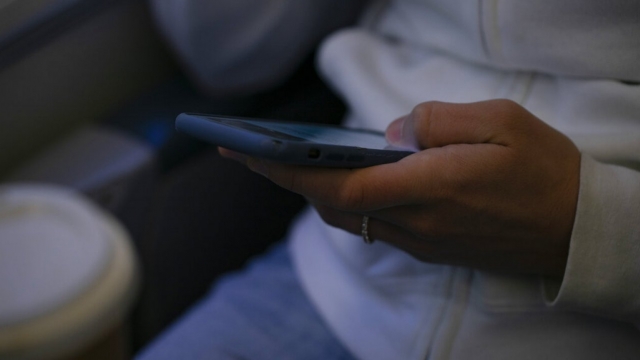A new report from Sapien Labs, a neuroscience research nonprofit, looked at global data from 27,969 18- to 24-year-olds obtained between January and April 2023 through the Global Mind Project, an online mental health survey.
This age group, Gen Z, is the first generation to grow up with smartphones — cellphones with an internet connection. Apple released the first iPhone in 2007.
Researchers looked at someone's age when they got their first smartphone to see if it impacted parts of mental well-being, like social engagement, self-esteem and suicidal thoughts.
The major takeaway
Overall mental wellbeing scores were consistently higher when smartphone ownership began at an older age, both for females and males.
SEE MORE: The need for digital wellness
Key findings
• 46% of females experiencing mental health challenges received their first phone at age 18
• 74% of females experiencing mental health challenges got their first smartphone at age 6
• 36% of males reported experiencing mental health challenges got their first smartphone at age 18 compared to 42% whose smartphone ownership began at age 6
Suicidal thoughts, feelings of aggression toward others, a sense of being detached from reality or hallucinations were the most dramatic in females who got their phones at a younger age.
Sapien Labs founder and chief researcher Tara Thiagarajan says this relates to the greatest impact they saw — what she calls a person's social self.
"This encompasses all of the factors that determine how you see yourself and your ability to interact positively with other people — form relationships, maintain relationships and so on," she said.
Some important context: This research has not been reviewed by scientific peers like a study published in one of the major medical journals. Thiagarajan says Sapien instead released the data report on its own to give a current snapshot. The peer review process often takes weeks for a research paper to be accepted, and months to be published. Many reviewers are also researchers, doctors or professors who do work for a journal.
SEE MORE: Research shows some Americans are almost constantly on the internet
There are additional studies on cell phones and mental health, and at this point, we don't have a clear-cut answer to what age is too young or just right to start using a smartphone.
Right now, the way the data is collected in these research studies is often an apples-to-oranges situation. For example, the Sapien Labs report's data came from young adults self-reporting, but it was from a large group of thousands of people from dozens of countries.
Compare that to research out this past November from Stanford Medicine that followed a smaller group of 250 people for five years and did not find a connection between the age a child got their first cell phone and their sleep patterns, depression symptoms or grades.
What it means is more research is needed.
What could someone do now? Psychology experts say regardless of age, it's not just limiting the time you're on a smartphone, but what someone does during that phone-free time. They suggest engaging, conversing, and interacting face to face, in real life, with other people.
Trending stories at Scrippsnews.com




